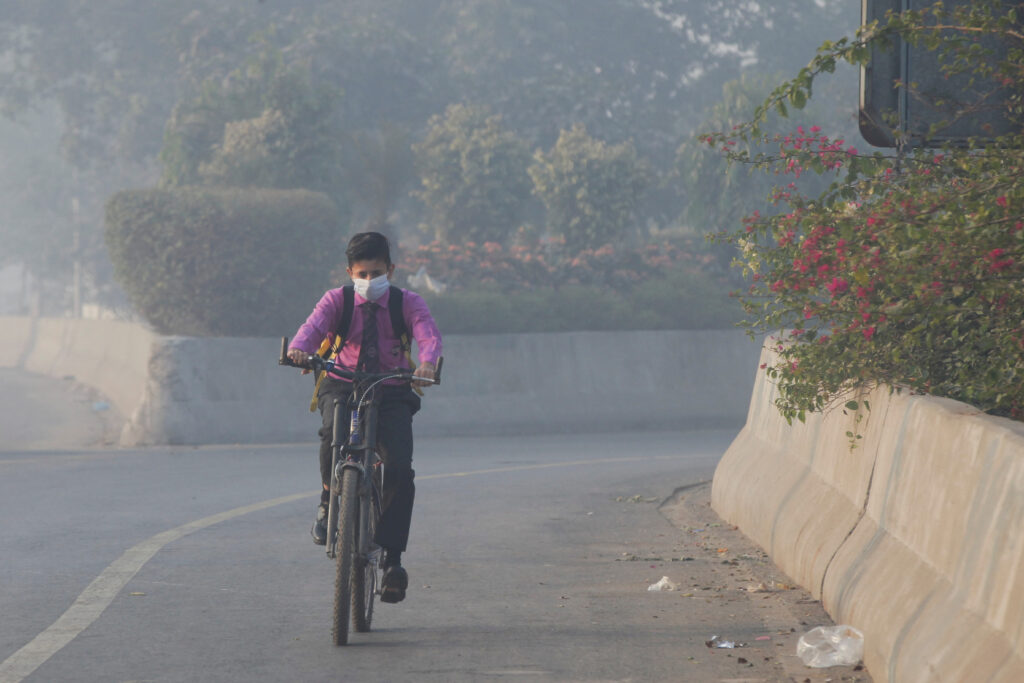- Web Desk
- Feb 24, 2026
India’s role crucial in addressing climate crisis: Marriyum Aurangzeb
-

- Web Desk
- Feb 07, 2025

ISLAMABAD: Highlighting the importance of dialogue across South Asia to address the climate crisis plaguing the nations, Senior Minister Government Of Punjab Marriyum Aurangzeb said Ministry of Foreign Affairs has been requested to initiate talks with India.
She shared this while addressing the first session of the second day of Breathe Pakistan Conference, which is being organised in Islamabad by Dawn Media, to steer discourse around climate change.
Minister, Planning, Development & Special Initiatives For Pakistan Ahsan Iqbal proposed a national climate authority, which was also singled out on Thursday by Justice Mansoor Ali Shah in his address. Iqbal also said that academia, environmental and climate sector experts, and private sector are far more important to implement policies that are currently in place and are being formulated.
UN Resident and Humanitarian Coordinator Mohamed Yahya said that it appeared that Pakistan was receiving a monsoon season which was on ‘steroids’: “For Pakistan’s survival, it is necessary to build relationships with the Indus, and we will be providing our support on initiatives around it.”
Lauding the various efforts of the Punjab government Marriyum Aurangzeb said that Punjab’s climate policy is targeted at improving resilience and adaptability with special focus on mitigating damages, especially smog: “One of the major initiatives is to reduce crop burning. We have seen the crop burning activities in India have a lasting effect on Punjab’s air quality.”
She listed a number of initiatives taken like mandatory mist systems for dust suppression, 5,000 super seeders on 60 percent subsidy, emission control systems as well as smog control rooms.
She also pointed out that the province is undergoing an intense transformation from fossil fuels to electric vehicles with 1,000 EV buses, 200,000 electric two and three-wheelers, electrical vehicle (EV) charging stations as well as free solar panels to consumers of less than 200 MW and subsidised solar panels for consumers above that: “Similarly, we have sustainability initiatives that include renewable energy transition including 26,312 public facilities being solarised. For waste management, we are looking at Suthra Punjab program for solid waste collection and disposal which includes material recovery facility, landfill sites, biofuel among others.”
With Punjab now having a Climate Resilience Committee, she recommended an integrated national approach needed, with policy interventions on emissions and standards for plastics and establishing standards on monitoring air quality.
Coordinator to the Prime Minister on Climate Change Romina Khurshid Alam said that the time is now or never: “Pakistanis are resilient in face of adversity. With the right policy in place, Pakistan can turn these challenges into opportunities of environmental sustainability and financial stability.”
She added that governance and climate justice are not separate, and are they are interconnected: “It is essential to establish a media caucus for environmental change, to drive realisation and climate awareness along with climate action.”




